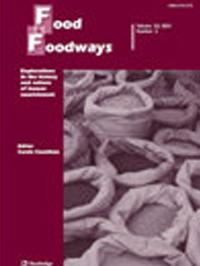
Author: Lauren Alex O’Hagan & Göran Eriksson
Time: March 30. 2025
Abstract:
This paper historicizes the contemporary meat substitutes trend by analyzing advertisements from the Sanitas Nut Food Company, founded by Dr John Harvey Kellogg, during its first five years of operation (1896-1901). Using visual social semiotics, it explores the rhetorical and multimodal strategies used in the advertisements, finding that Sanitas marketed its meat substitute products by drawing upon four meat myths—normal, natural, necessary, and nice—often using shockvertising to promote dietary change. However, by focusing on meat’s taste, flavor, appearance, and nutritional benefits, Sanitas unintentionally perpetuated meat’s superiority, undermining the significance of meat substitutes in their own right. Today, the persistence of similar strategies, though adapted to reflect contemporary societal values, highlights the need for marketing that prioritizes consumer education and animal agriculture issues. These findings emphasize the enduring influence of certain ways of shaping “eating knowledge” around meat and our material interactions with food.
Keywords: Advertisements, John Harvey Kellogg, meat myths, meat substitutes, social semiotics
Link: https://doi.org/10.1080/07409710.2025.2482483
https://www.tandfonline.com/eprint/GDMRUDSXASIZGWY5KQHF/full?target=10.1080/07409710.2025.2482483


 Back
Back

 Office Hour: 9:00-17:00
Office Hour: 9:00-17:00 Office: +86-21-67705180
Office: +86-21-67705180 Email: 2020215@shisu.edu.cn
Email: 2020215@shisu.edu.cn







